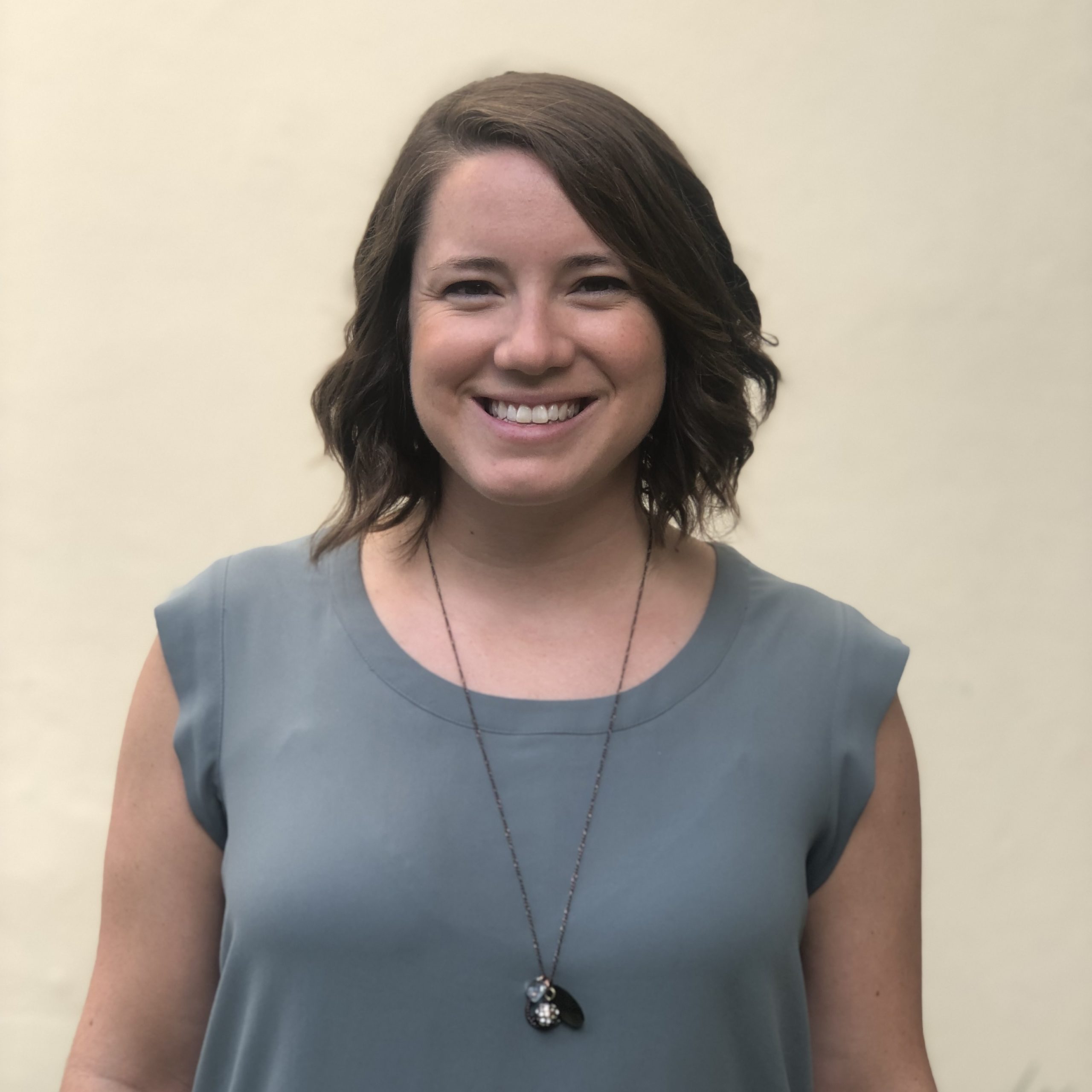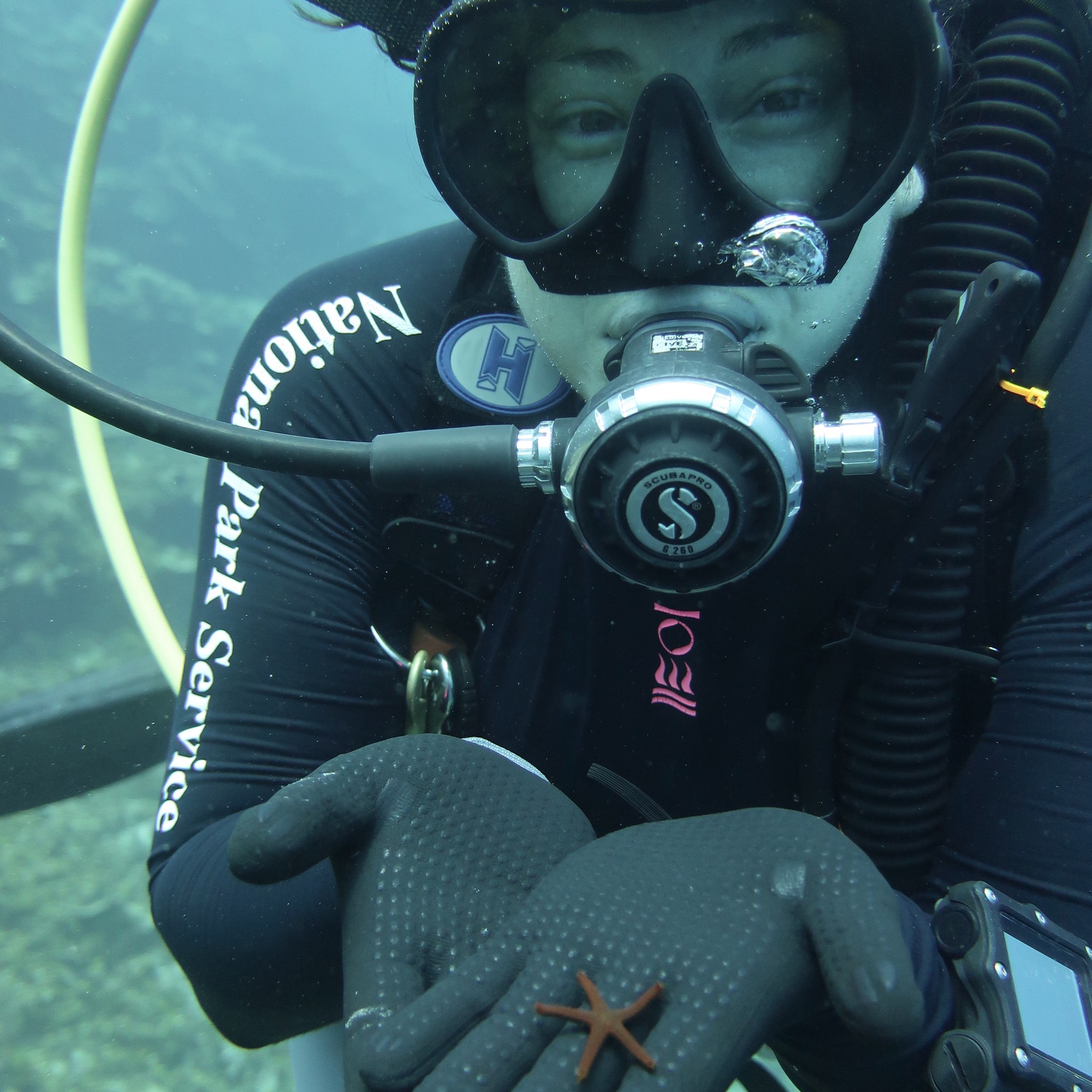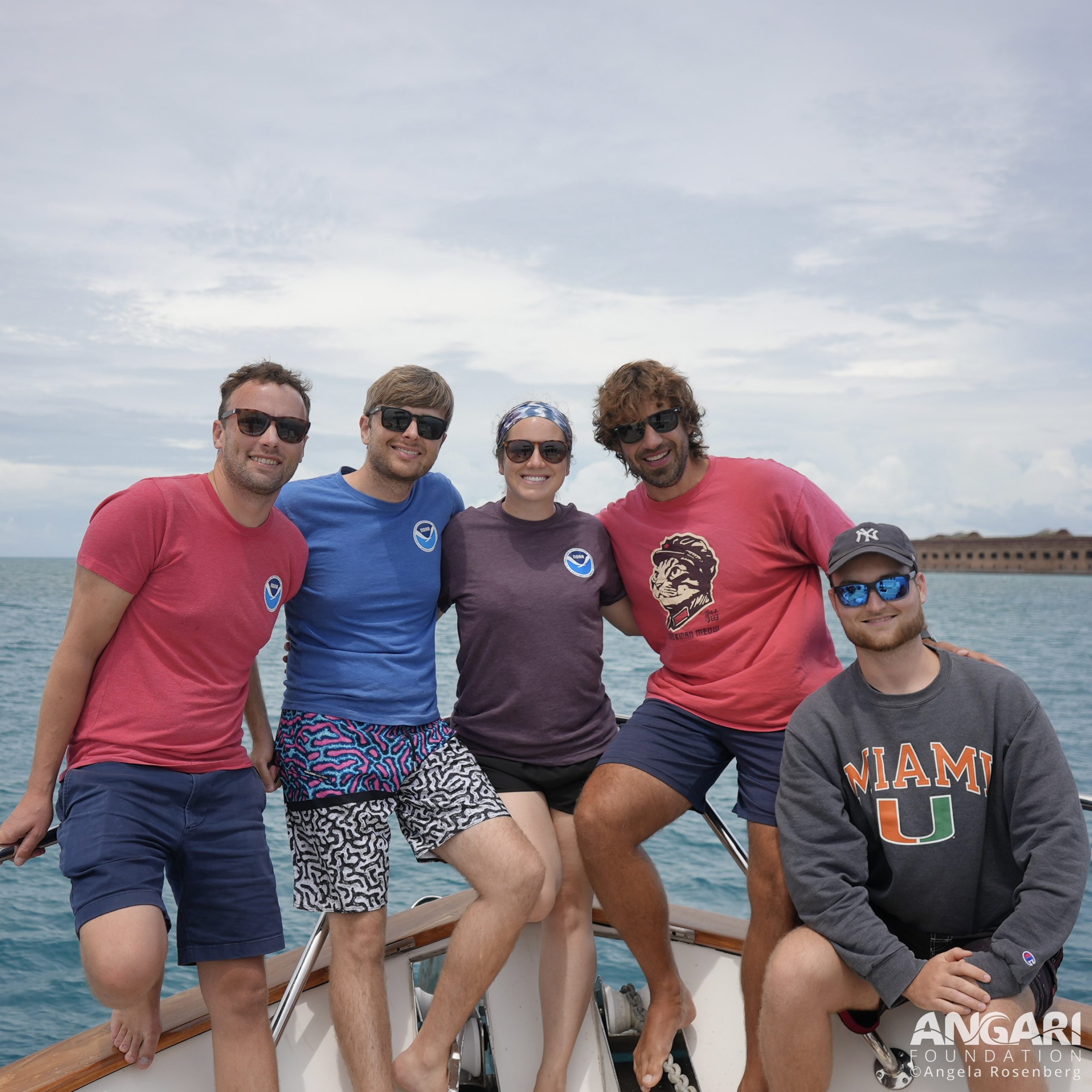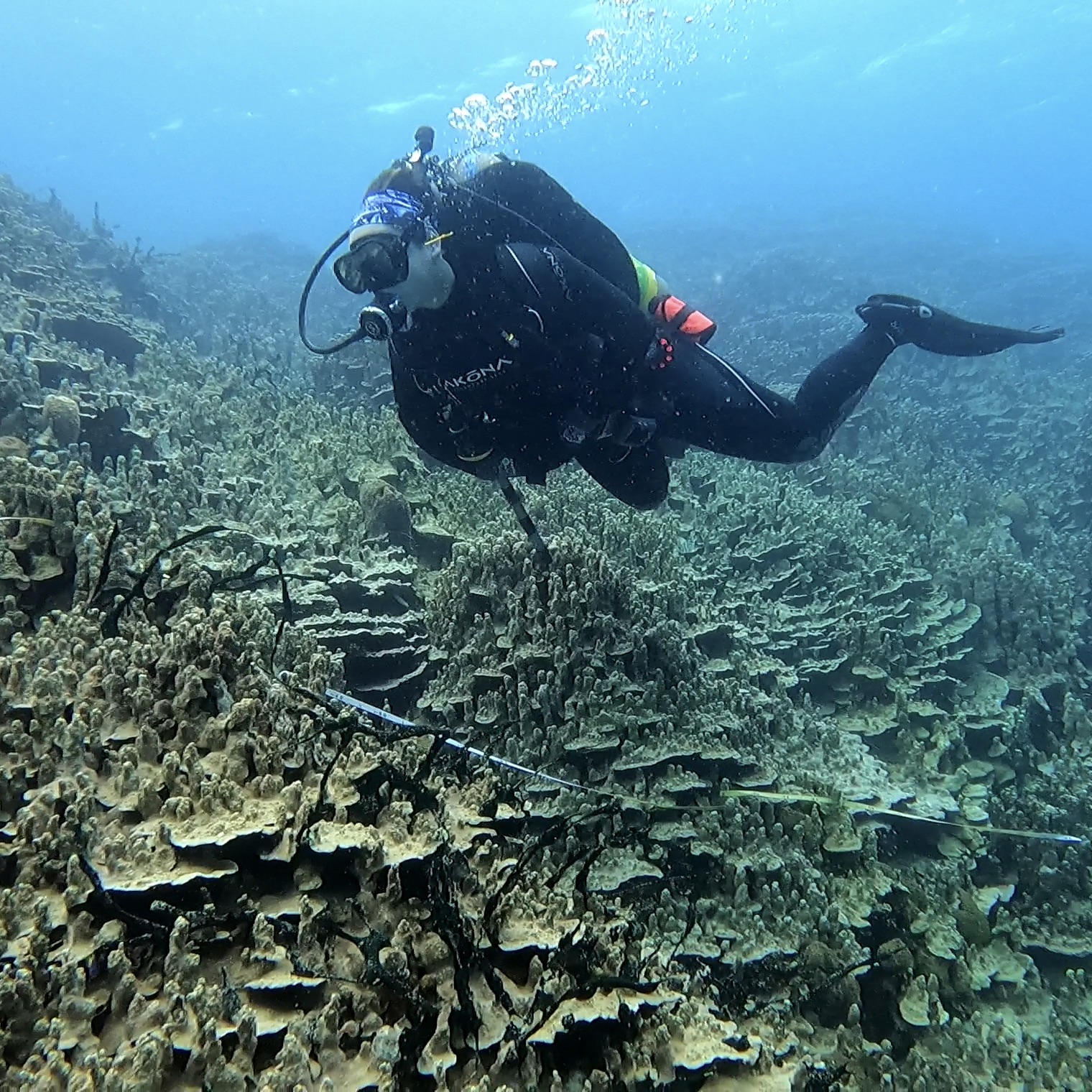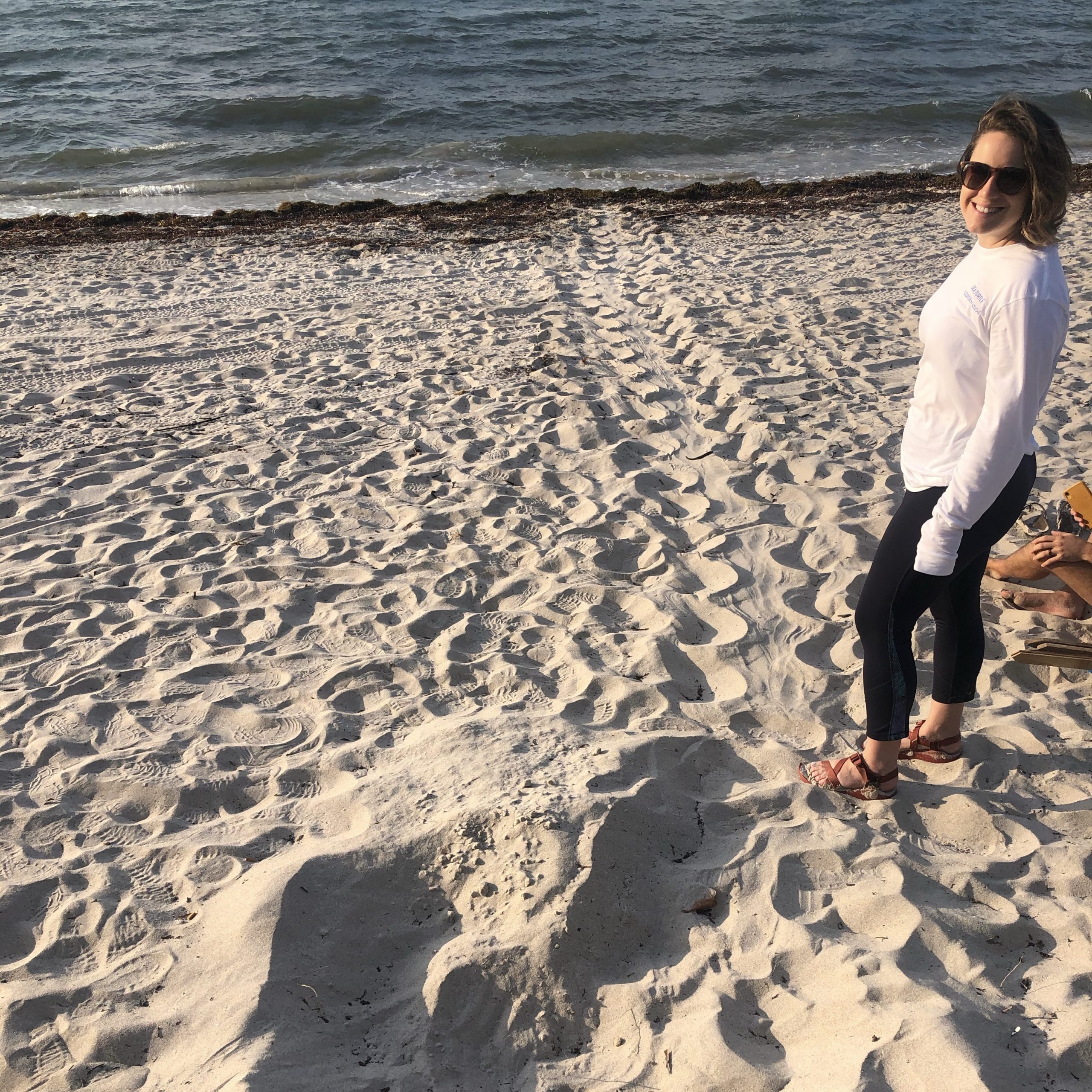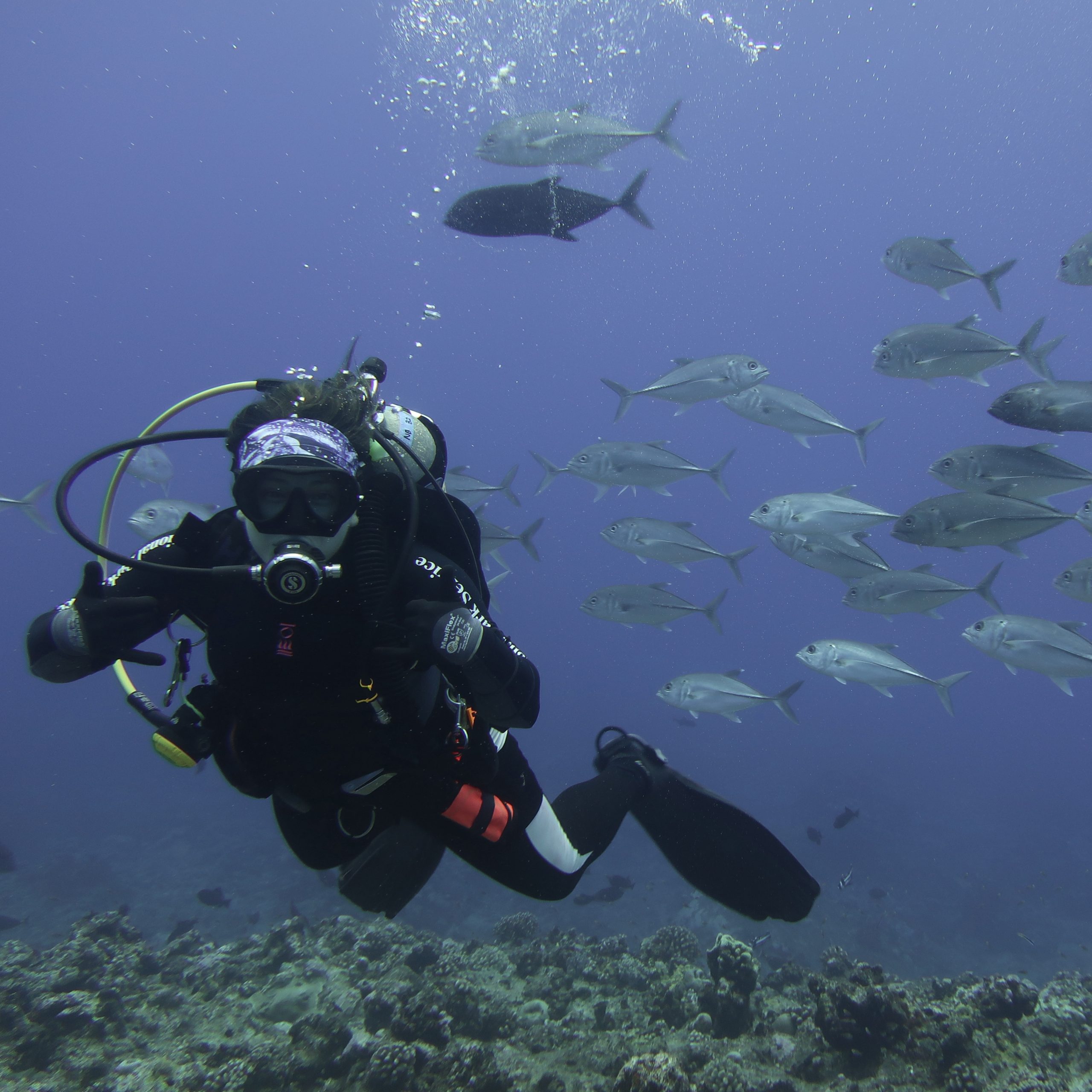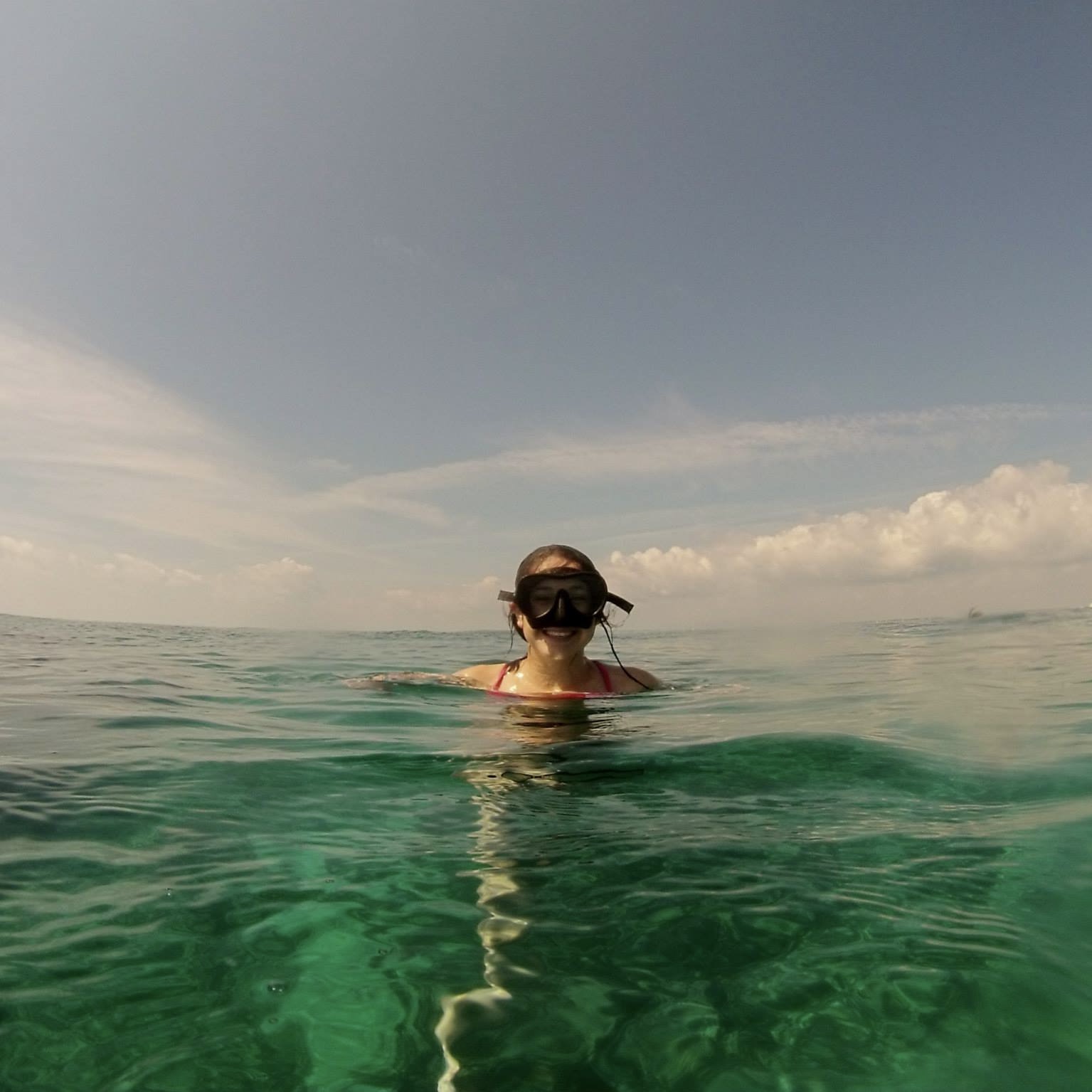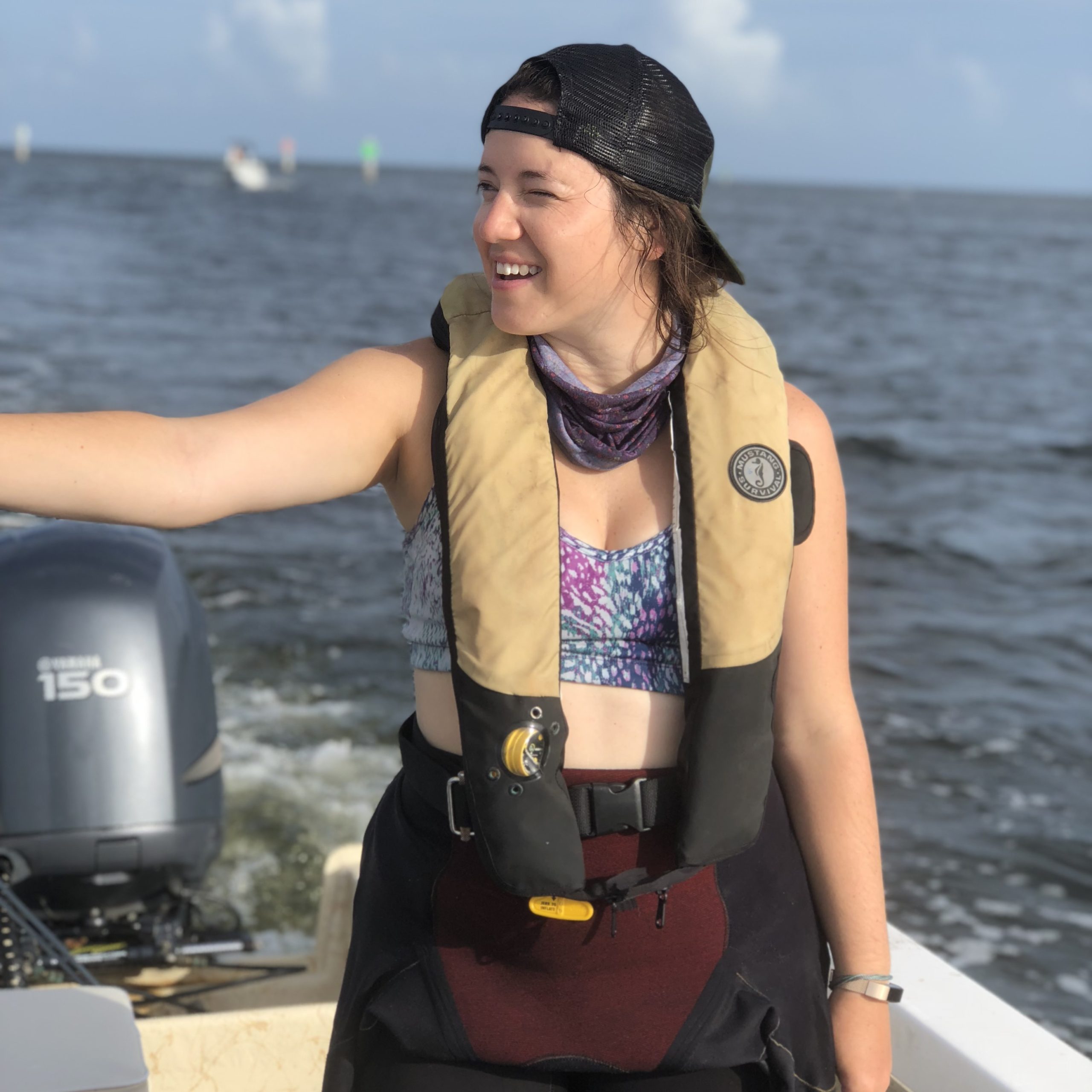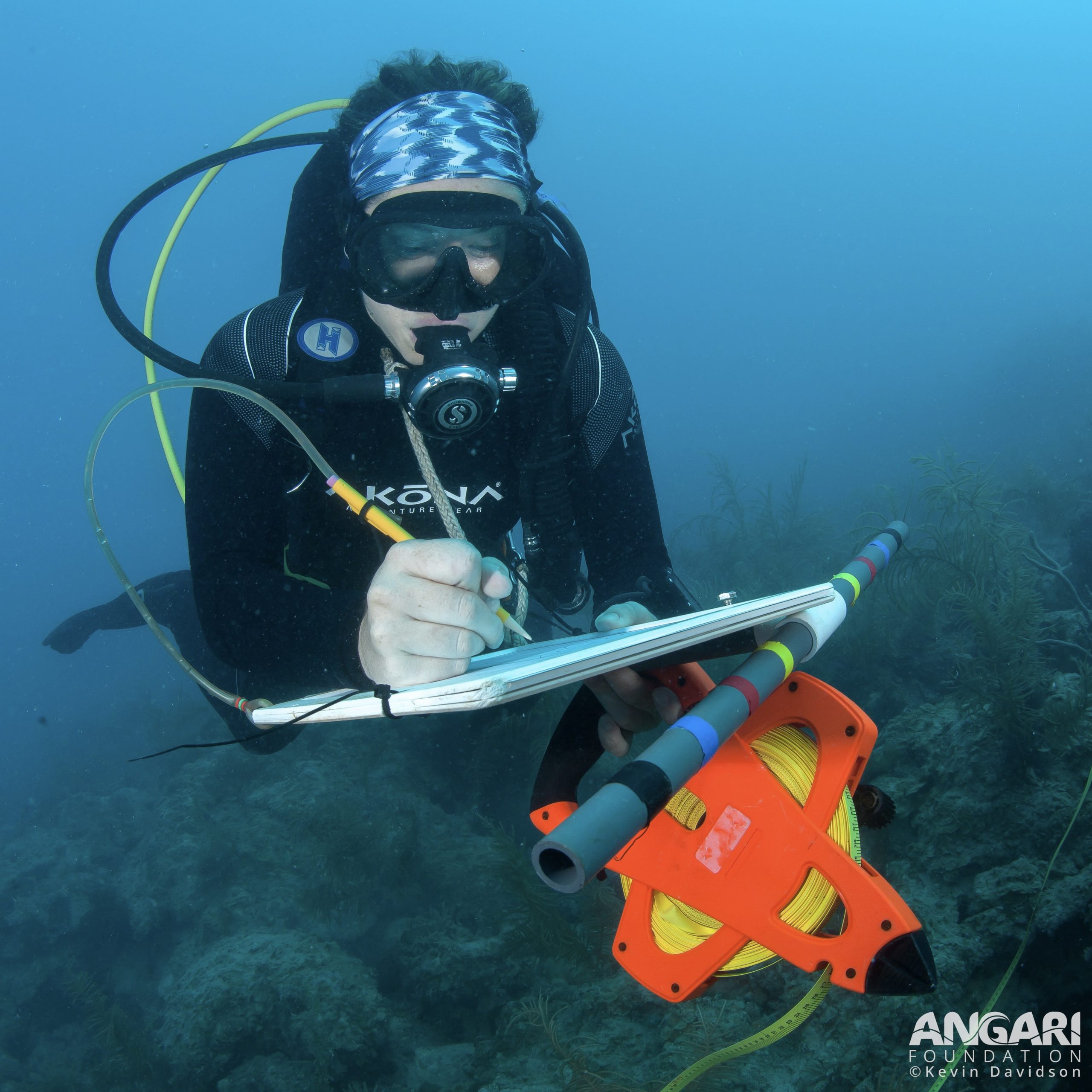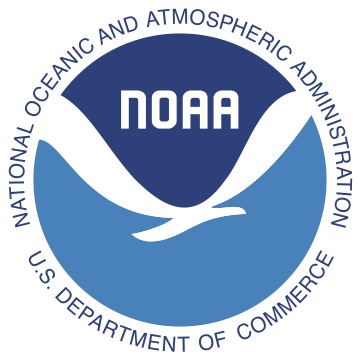
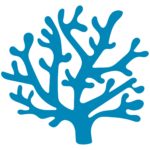
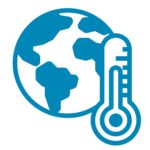

Meet Nicole Besemer
I am a marine biologist and my work has focused primarily on South Florida and Caribbean ecosystem management and conservation. My role with the Atlantic Oceanographic and Meteorological Laboratory (AOML) Coral Program is as the National Coral Reef Monitoring Program (NCRMP)’s Caribbean Climate Operations Coordinator. My work focuses on the implementation of the Climate Monitoring Component of NCRMP, including the planning and operation of associated fieldwork and research trips, as well as data analysis related to how ocean acidification and global warming are affecting coral reef communities in the Atlantic and Caribbean.
2017 Master of Professional Science in Tropical Marine Ecosystem Management, University of Miami
2013 B.S. Marine Science and Biology, East Stroudsburg University of Pennsylvania
Get To Know Nicole
I was born in Queens, New York and grew up fishing on my dad’s boat. This led to my passion for the ocean and wanting to do something to protect it. We moved a lot and didn’t always live by the ocean, but when it came time to choose a major, I knew I wanted to choose a career path that would help me follow my passions. I received my undergraduate degree from East Stroudsburg University in Biology and Marine Science. I then moved to South Florida to make connections and figure out what specialty I wanted to dive into. I participated in multiple internships and volunteer opportunities before attending the University of Miami to pursue my graduate degree in Tropical Marine Ecosystem Management. I now work as an oceanographer for AOML’s Coral Program.
Growing up in the Northeast, I didn’t get to experience the ocean the way I can down here. I will never get tired of how clear, calm and beautiful South Florida and the Caribbean can be.
Spotted eagle ray, I just never get tired of seeing them!
The impacts of climate change on coral reefs can evolve over a significant time period, so it’s not always obvious to see immediate change. That being said, it’s very interesting to see how reefs and water quality closer to urban areas differ from more remote locations. I think some of these comparisons can provide insight for future conditions.
In my spare time, I love to spend time with friends and family, listen to music, go out on the boat and eat the delicious food that Miami has to offer.
The hope that our research will make an impact on the future of coral reefs and our other critically endangered ecosystems is what keeps me inspired to pursue this work.
I hope to always be able to contribute to science that promotes meaningful change for our oceans.
The work done at NOAA has the ability to directly impact management decisions for the ecosystems that we study, which is why I think it is so important.
A typical work day can really vary for me depending on time of year and any new projects that might arise. Summer is our field season, so often leading up to that it’s a lot of planning trips and participating in field work to collect our monitoring data. In the fall, we focus on analyzing the data and preparing reports for our funding partners, local managers, stakeholders and collaborators! There’s also a lot of permitting and other administrative tasks to handle. Every day is different and that’s why I love it.
I am most proud of the variety of marine research fields that I have been able to experience in my career path.
Interview conducted in July 2022

